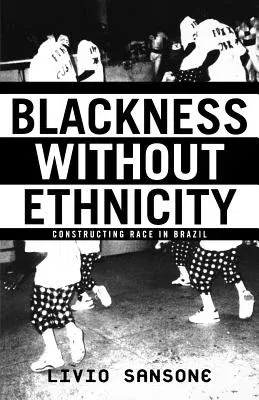L Sansone
(Author)Blackness Without Ethnicity: Constructing Race in Brazil (2003)Paperback - 2003, 31 August 2003

Qty
1
Turbo
Ships in 2 - 3 days
In Stock
Free Delivery
Cash on Delivery
15 Days
Free Returns
Secure Checkout
Print Length
248 pages
Language
English
Publisher
Palgrave MacMillan
Date Published
31 Aug 2003
ISBN-10
0312293755
ISBN-13
9780312293758
Description
Product Details
Author:
Book Edition:
2003
Book Format:
Paperback
Country of Origin:
US
Date Published:
31 August 2003
Dimensions:
21.59 x
13.97 x
2.03 cm
ISBN-10:
0312293755
ISBN-13:
9780312293758
Language:
English
Location:
New York
Pages:
248
Publisher:
Weight:
362.87 gm

